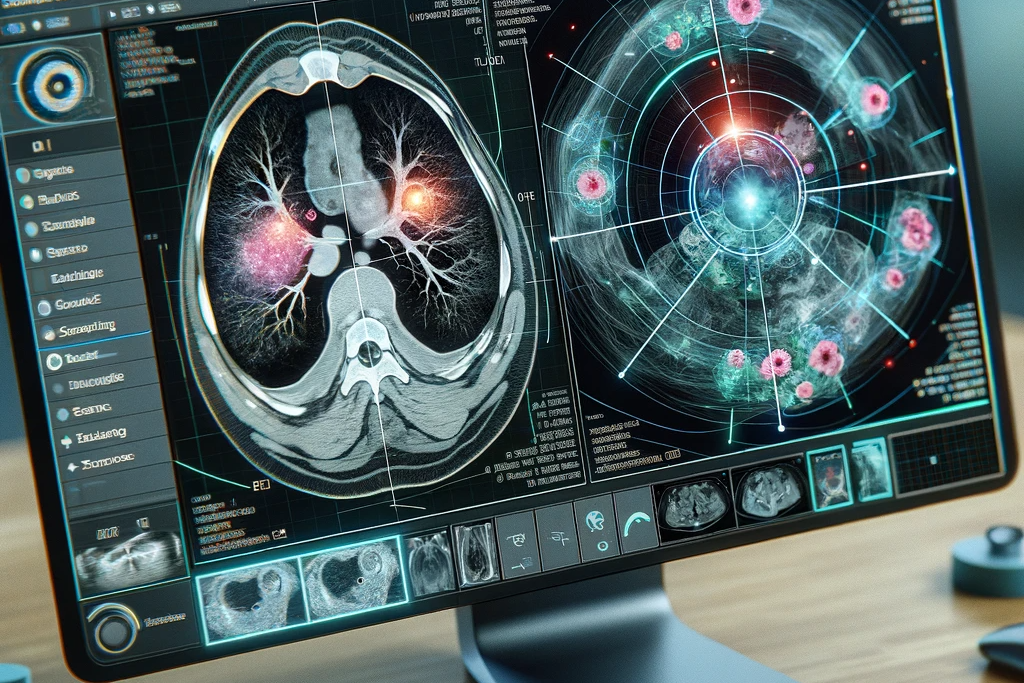Artificial intelligence (AI) has emerged as a powerful tool in the fight against cancer, revolutionizing the way we diagnose, treat, and manage this complex disease. With its ability to analyze vast amounts of data, identify patterns, and make predictions with unprecedented accuracy, AI is transforming every aspect of cancer care, from early detection to personalized treatment planning. In this article, we will explore some of the most promising innovations in AI that are helping to combat cancer and improve patient outcomes.
1. Early Detection and Diagnosis
One of the most significant contributions of AI to cancer care is its role in early detection and diagnosis. By analyzing medical imaging data such as mammograms, MRIs, and CT scans, AI algorithms can detect subtle abnormalities that may indicate the presence of cancer at its earliest stages. This early detection allows for timely intervention, potentially improving treatment outcomes and reducing mortality rates. Additionally, AI-powered diagnostic tools can help reduce the workload of radiologists and pathologists, allowing them to focus on more complex cases and providing faster turnaround times for patients awaiting results.
2. Precision Medicine and Personalized Treatment

AI is also driving advancements in precision medicine, which aims to tailor treatment strategies to individual patients based on their unique genetic makeup, tumor characteristics, and other factors. By analyzing genomic data and clinical records, AI algorithms can identify molecular biomarkers associated with specific cancer subtypes and predict how patients are likely to respond to various treatments. This personalized approach enables oncologists to prescribe targeted therapies that are more effective and less toxic, ultimately improving patient outcomes and quality of life. Additionally, AI-powered predictive models can help identify patients at high risk of disease recurrence, allowing for closer monitoring and proactive interventions to prevent relapse.
3. Drug Discovery and Development
Another area where AI is making significant strides in cancer research is in the discovery and development of new drugs and therapies. Traditional drug discovery methods are time-consuming, expensive, and often fail to yield promising candidates. AI, however, offers a more efficient and systematic approach to drug discovery by analyzing vast datasets of biological and chemical information to identify potential drug targets and compounds. By simulating drug interactions, predicting efficacy, and optimizing drug design, AI-powered platforms can accelerate the development of novel cancer treatments and bring them to market faster. Additionally, AI can help repurpose existing drugs for new indications, potentially expanding the repertoire of therapeutic options available to cancer patients.
4. Treatment Optimization and Monitoring
In addition to aiding in treatment selection, AI can also optimize treatment regimens and monitor patient response in real-time. By analyzing patient data, including clinical outcomes, laboratory results, and imaging studies, AI algorithms can identify patterns indicative of treatment efficacy or toxicity. This information allows oncologists to adjust dosages, switch therapies, or introduce supportive care measures as needed to maximize therapeutic benefit and minimize adverse effects. Furthermore, AI-powered decision support systems can assist clinicians in interpreting complex data, staying up-to-date with the latest evidence-based guidelines, and making informed treatment decisions tailored to each patient’s unique circumstances.
5. Patient Empowerment and Support

Beyond its clinical applications, AI has the potential to empower patients and improve their overall experience throughout the cancer journey. Mobile apps and virtual assistants powered by AI can provide patients with personalized education, self-management tools, and support resources to help them navigate their diagnosis, treatment, and survivorship. From scheduling appointments and tracking symptoms to connecting with peer support groups and accessing mental health services, AI-driven platforms can enhance patient engagement, autonomy, and quality of life. By leveraging technology to deliver patient-centered care, healthcare providers can better meet the diverse needs of cancer patients and promote holistic well-being.
As the pace of technological innovation accelerates, so too does the promise of artificial intelligence to revolutionize cancer care and improve patient outcomes. From early detection and precision medicine to drug discovery and treatment optimization, AI is reshaping every aspect of the cancer care continuum. By harnessing the power of AI-driven innovations, healthcare providers can deliver more effective, personalized, and accessible care to cancer patients, ultimately advancing the fight against this devastating disease. As we continue to explore the potential of AI in medicine, one thing is clear: the future of cancer care has never looked more promising.


